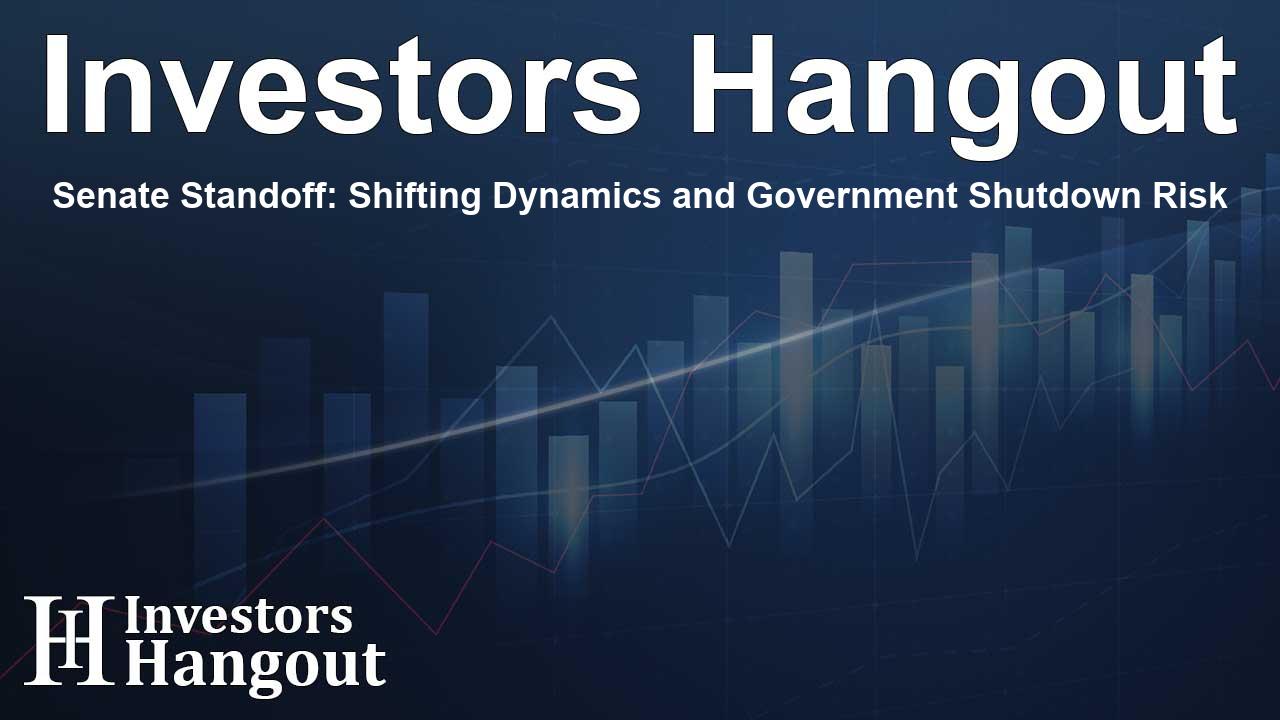Senate Standoff: Shifting Dynamics and Government Shutdown Risk

Senate's Rejection of Funding Bill Signals Tough Times Ahead
Senate Democrats have made a bold move by rejecting a stopgap spending bill that was passed by the House, creating a tense atmosphere in Washington. The brink of a government shutdown looms ominously, with the potential date set for October 1.
Details of the Vote and Political Landscape
The bill was defeated in a narrow vote, with 44 senators against it and only 48 in favor, highlighting the deep political divides currently affecting Congress. The sole Democrat who sided with Republicans was Pennsylvania's Senator John Fetterman. The situation escalated as the House had initially passed the bill with a closer vote of 217-212, indicating significant partisan tensions on both ends. Two Republican senators, Rand Paul and Lisa Murkowski, also opposed this measure.
The Impasse and its Consequences
In the wake of this vote, Republicans and Democrats have found themselves at an impasse, unable to reach an agreement on how to move forward. Senate Majority Leader John Thune had urged bipartisan support for the stopgap measure, claiming it was the only viable option likely to gain acceptance from the White House. Nevertheless, attempts at negotiation appeared futile, as Thune expressed no interest in engaging with Senate Democratic Leader Chuck Schumer.
Democrats' Demands and the Stalemate
Democrats are now advocating for the inclusion of health care subsidies under the Affordable Care Act in any continuing resolution, as these provisions are critical and set to expire by the end of 2025. Schumer has placed blame on Republicans for not negotiating in good faith, which he argues has brought the government closer to a shutdown.
Republican Tactics on Funding Bill
In a strategic move, Republican leaders have advised their House members to stay away from Washington until after the funding deadline. This tactic effectively limits Democrats to either reconsider the passed resolution from the House or face the reality of a government shutdown, a situation that could lead to severe disruptions across numerous federal agencies.
Implications of a Government Shutdown
Should the current deadlock continue without a resolution, the resultant government shutdown could have far-reaching consequences, affecting everything from employee paychecks to public services. The standoff is not merely a political game; it could touch the lives of countless citizens who rely on government services.
Health Care Subsidies: A Key Sticking Point
The push for extended health care premium subsidies remains a significant area of contention, with Republicans currently maintaining a firm stance against any changes to the proposed funding plan. This increasing divide underscores the challenges facing negotiators as they attempt to avert the impending crisis.
Conclusion: The Path Forward
The decision ultimately lies with the Democratic Party. They must decide whether to reconsider the House-passed funding resolution or risk triggering a government shutdown, an outcome that no party wishes to confront amidst an already tense political climate.
Frequently Asked Questions
What led to the rejection of the funding bill by Senate Democrats?
The rejection stemmed from a lack of bipartisan support and an inability to negotiate terms that could satisfy both parties, particularly regarding health care subsidies.
What are the potential consequences of a government shutdown?
A government shutdown could suspend numerous federal services, delay paychecks for government employees, and disrupt various public programs.
Who was the only Democrat to support the Republican funding proposal?
Senator John Fetterman was the only Democrat to vote in favor of the Republican-drafted funding proposal.
What issues are Democrats focusing on in their negotiations?
Democrats are primarily pushing for the inclusion of health care subsidies under the Affordable Care Act in any continuing resolutions to avoid a shutdown.
What strategy are Republican leaders using regarding the funding vote?
Republican leaders have advised their members against returning to Washington until after the funding deadline, pressuring Democrats to make concessions.
About The Author
Contact Ryan Hughes privately here. Or send an email with ATTN: Ryan Hughes as the subject to contact@investorshangout.com.
About Investors Hangout
Investors Hangout is a leading online stock forum for financial discussion and learning, offering a wide range of free tools and resources. It draws in traders of all levels, who exchange market knowledge, investigate trading tactics, and keep an eye on industry developments in real time. Featuring financial articles, stock message boards, quotes, charts, company profiles, and live news updates. Through cooperative learning and a wealth of informational resources, it helps users from novices creating their first portfolios to experts honing their techniques. Join Investors Hangout today: https://investorshangout.com/
The content of this article is based on factual, publicly available information and does not represent legal, financial, or investment advice. Investors Hangout does not offer financial advice, and the author is not a licensed financial advisor. Consult a qualified advisor before making any financial or investment decisions based on this article. This article should not be considered advice to purchase, sell, or hold any securities or other investments. If any of the material provided here is inaccurate, please contact us for corrections.
